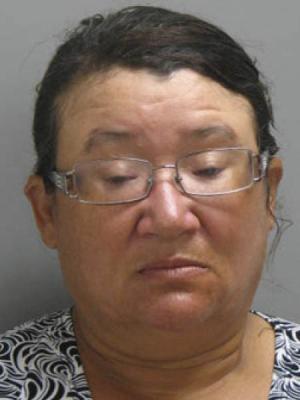Police testify in Day 5 of Millsboro daycare trial
Delaware State Police detectives testified Nov. 21 they found over-the-counter drugs in the home of a woman accused of murder in the 2015 death of a 10-month-old boy. They also testified they did not search the child’s home for evidence until more than a year after the boy’s death.
Valorie Handy, 52, is standing trial in Delaware Superior Court in Georgetown on charges of murder by abuse or neglect. Prosecutors say she provided the drug diphenhydramine to the infant at her Millsboro daycare in January 2015 in order to get him to go to sleep. The state medical examiner, Dr. Gary Collins, ruled the boy’s death a homicide after discovering high levels of diphenhydramine, an antihistamine most notably used in the allergy medication Benadryl. However, diphenhydramine can also act as a sedative in large doses, he said.
On Day 5 of the trial, Nov. 21, Delaware State Police Detective John King, lead homicide detective on the case, testified that after Collins ruled the boy’s death a homicide, police visited Handy’s home to see if she had any medications. King said they found Benadryl and a generic allergy medication containing diphenhydramine. He said they asked Handy if she gave the boy Benadryl, and she answered no. King testified that Handy told them she and her husband had used Benadryl. Detective Roger Cresto, who also investigated the crime scene, testified that no Benadryl tablets were found in the Handy’s Little Helpers daycare, which was located in an attachment to Handy’s home, separated by a sliding glass door.
King testified that the first time they went to Handy’s home, she did not allow them to search the home but brought out her medications for them to photograph and examine. King said he later returned to the home with a search warrant to collect evidence.
Handy’s defense attorneys have denied she gave the boy diphenhydramine and have been critical of Delaware State Police for not collecting all evidence available at the scene, including cups of milk and food sent to the daycare by the boy’s mother.
Defense attorney Daniel Strumpf questioned why King did not record his initial interaction with Handy and why police did not investigate the boy’s family’s medications until much later. Strumpf said detectives did not search the parents’ home until almost a year after their child’s death, and in addition, detectives notified the parents before they searched. King said police did not find any drugs containing diphenhydramine at the parents’ home.
Much of the day’s testimony was devoted to Dr. Fred Henretig, a pediatrician and toxicologist with the Poison Control Center in Philadelphia, testifying for the prosecution as an expert witness. Henretig testified that diphenhydramine is an older class of antihistamine; besides being used to treat allergies, it has also been used as a sleep aid in drugs such as Tylenol PM. He said it should not be given to infants or children because it can make them agitated, combative and delirious even in smaller doses. In the most extreme cases, the drug can cause organ failure and cardiac arrhythmia, Henretig said.
Henretig testified that in an infant of the boy’s size - about 21 pounds - 75 milligrams, or about three Benadryl tablets, would be enough to cause serious side effects. He said diphenhydramine absorbs rapidly in the body, and that it likely took about 30 to 60 minutes for the boy to begin experiencing its side effects. Henretig testified that there is no way to determine exactly how much diphenhydramine the boy had ingested, but there is no medical reason for an infant to have diphenhydramine, and it is highly unlikely a 10-month-old could get into it himself. Finally, Henretig said there is nothing to suggest that the boy could have ingested diphenhydramine by drinking his mother’s breast milk.
Defense attorney Gary Traynor sought to impeach Henretig’s standing as an expert witness by attacking his opinions on the infant’s hair samples, collected after the boy was exhumed for a second autopsy. Henretig said he did not believe hair samples would be very conclusive. However, in a hearing when the jury was not present, Traynor tried to introduce email communications between Henretig and lead prosecutor Melanie Withers as evidence showing the state was reaching for conclusions and pulling a bait-and-switch as to who is an expert.
Judge T. Henley Graves did not allow the emails to be used as evidence in front of the jury, saying that Henretig had not represented himself as a hair expert.
The trial is set to continue Tuesday, Nov. 22 in Georgetown.
Ryan Mavity covers Milton and the court system. He is married to Rachel Swick Mavity and has two kids, Alex and Jane. Ryan started with the Cape Gazette all the way back in February 2007, previously covering the City of Rehoboth Beach. A native of Easton, Md. and graduate of Towson University, Ryan enjoys watching the Baltimore Ravens, Washington Capitals and Baltimore Orioles in his spare time.




















































